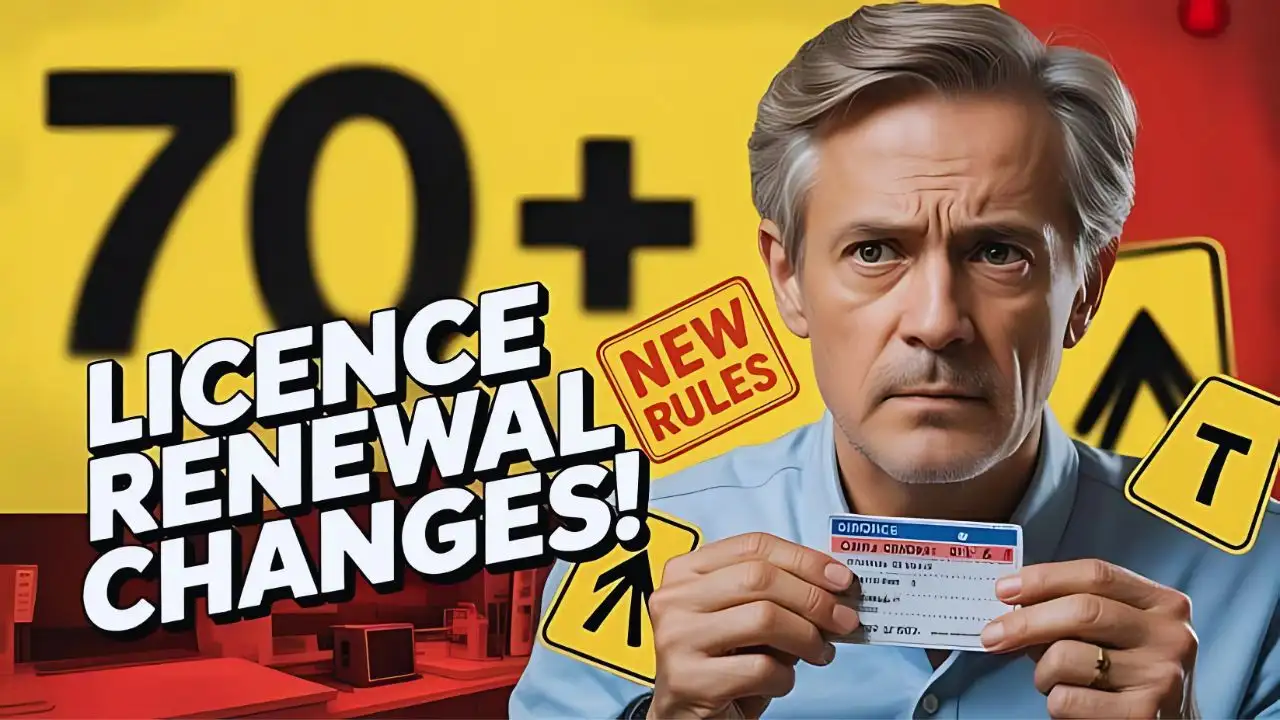Since 2025, Australians aged 70 and above will be subject to new requirements when renewing their driver’s licence. The changes were instituted as part of the overall strategy to ensure that the road is made safe by the government for the free existence of elders. With aging population and increased concerns over road safety, the new regulations strive for a balance of aiming at mobility and responsibility.
Medical Assessments Mandatory
Amongst the significant changes coming in 2025 is the one making medical assessment mandatory for a driver over the age of 70. The applicant must furnish evidence of being medically fit to drive before renewing his licence. The areas of such assessments will include sight power, reactions, health conditions that might affect safe driving, and the like.
Driving Tests for Seniors
Those that provide a refresher on their skills or show competence in their driving skills may be excused from a road test. However, it is the final discretion of the licensing officers to call a road test as they deem necessary. In general, road testing will remain quite limited to very few instances.
In other instances, older adult drivers may be required to undertake a practical driving test. The test is primarily for those with medical histories or those whose previous records show violations of the rules and regulations. The idea behind it is not malicious: to unfairly take away an old person’s license; rather, it ensures that every driver behind the wheel is capable of dealing with the present-day situations on our roads.
Conditional Licences for Safety
For a few senior drivers, conditional licences may be introduced. These could only permit daytime driving, restrict driving within a certain radius from home, or prohibit highway driving. These conditions are meant to reduce potential hazards while allowing the older person to drive where it is deemed safe.
Shorter Renewal Periods
The new rules also mean shorter licence renewal periods for older drivers. Rather than being given a long-term renewal, seniors will somehow have to renew often, ensuring that their medical and driving aptitudes get checked every now and then. This provides an additional layer of security and ensures peace of mind for families.
Supporting Seniors Through Education
The government intends to assist older drivers with refresher courses and road safety education. This program is designed to keep seniors informed about changes in traffic laws, new developments in vehicle technology, and practices of safe driving. These changes are designed to give seniors confidence and help them stay safe on the road, through education rather than restrictions.
Importance of the Changes
While many older Australians may be safe and cautious behind the wheel, age-related health conditions can influence reaction timing and decision-making. Changes in 2025 are not about taking away independence; rather, it is about allowing seniors to carry on driving, provided they do so without posing a risk to themselves or others.
Preparing for Licence Renewal in 2025
Drivers approaching 70 years of age should prepare under the changed rules by keeping up to date with health checks, especially for eyesight and hearing. One should also ensure that they are well aware of state requirements as each state could apply these rules differently. Families can become an essential support element and encourage their aging family members to see these changes as part of their safe driving implementation.
Final Thoughts
Since 2025, different driving license renewal rules apply to Australian seniors aged 70 and above, describing a more cautious approach toward road safety and independence for the seniors. The Government aims to safeguard all in the road through medical assessments, conditional licenses granted per conditions, and refresher programs. Hence, for seniors, the sooner they prepare and get spoilt for choice by these conditions, the easier it is to renew and carry on with the confidence of being able to drive.

